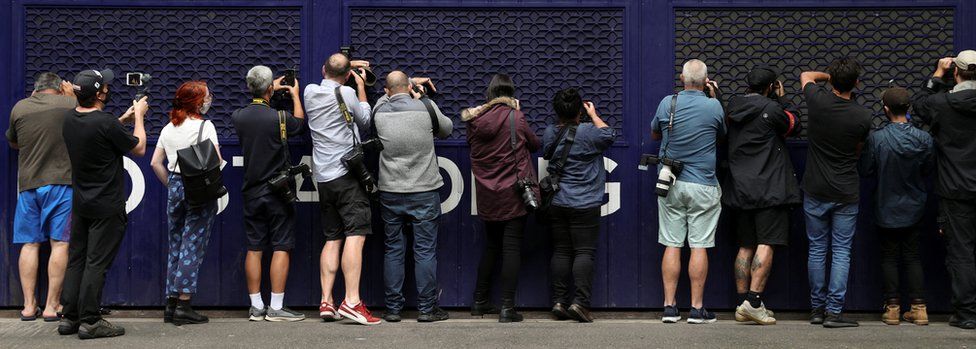
This article is more than
4 year old
The Serbian faces deportation after his visa was cancelled for a second time, with the government labelling the 34-year-old a threat to public health.
His lawyers are appealing against what they called an "irrational" judgement, with the hearing set for Sunday.
Djokovic is still scheduled to play the Australian Open on Monday in Melbourne.
If he were to win the tournament for a 10th time, he would become the most successful men's tennis player in the history of the sport with 21 major titles.
But Sunday's hearing, which has been scheduled for 09:30 local time (22:30 GMT on Saturday), is crucial if Djokovic is to be able to compete just hours later.
If he loses the appeal, the world's top-ranked men's tennis player faces deportation and a three-year visa ban.
On Saturday, shortly after an online procedural hearing, Djokovic's lawyers confirmed that he would spend the night in immigration detention at an undisclosed location in Melbourne.
At the hearing, Justice David O'Callaghan set the time for Sunday's proceeding but said it was yet to be decided whether it would be heard by a single judge or a full court of three.
Court documents were released later on Saturday that showed Immigration Minister Alex Hawke chose to cancel Djokovic's visa because - in his view - the unvaccinated player's presence could fuel opposition to Covid-19 vaccination.
"[I] consider that his presence may be a risk to the health of the Australian community," he wrote in a letter to Djokovic and his lawyers.
Djokovic's visa was first revoked shortly after his arrival in Melbourne on 6 January, after Australian Border Force officials said he had "failed to provide appropriate evidence" to receive a vaccine exemption.
The tennis star was detained for days at an immigration hotel, before his visa was reinstated by a judge, who ordered his release, ruling that border officials ignored correct procedure when he arrived.
But on Friday evening, Mr Hawke once again cancelled Djokovic's visa under separate powers in Australia's Migration Act.
The act allows him to deport anyone he deems a potential risk to "the health, safety or good order of the Australian community".
Prime Minister Scott Morrison said the decision followed "careful consideration".
Alluding to the heavy criticism his government has faced for allowing the unvaccinated player into Australia, Mr Morrison said: "Australians have made many sacrifices during this pandemic, and they rightly expect the result of those sacrifices to be protected."

Simon Atkinson, BBC News in Melbourne
Minutes after we started reporting the news of Djokovic's second visa cancellation, motorists leaned from car windows, honking their horns and shouting their approval.
Most people I've spoken to are pretty outraged that an unvaccinated player was ever allowed here in the first place.
Others have a more nuanced view. Sure, this is a shambles, they say, but the government overturning the ruling of an independent judge is pretty questionable too.
It's clear, then, that this is not just about sport. It's headline news and a major topic of conversation.
And the background is important, too, as Australia struggles with Covid-19.
Many people are getting jabbed after months of living under strict restrictions. Intensive care wards are filling up, daily deaths have hit record levels, and some might say you've got less chance of finding a Covid test kit in a pharmacy than Djokovic has of playing on Monday.
Given the seriousness of the Omicron wave, there's another sentiment that you hear often: this drawn-out saga has become a distraction from far more important issues.
Djokovic's legal team say their grounds for appeal will centre on the "invalid" rationale of Mr Hawke's decision, which lawyer Nick Wood said was based on the threat of "exciting anti-vax sentiment".
Mr Wood added that deporting the Serbian player would potentially do the same thing.
Serbian President Aleksandar Vucic, meanwhile, condemned the Australian minister's decision, telling Djokovic in an Instagram message: "Novak, we stand by you."
"If you wanted to ban Novak Djokovic from winning the 10th trophy in Melbourne why didn't you return him immediately, why didn't you tell him 'it is impossible to obtain a visa'?" Mr Vucic added.